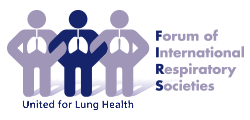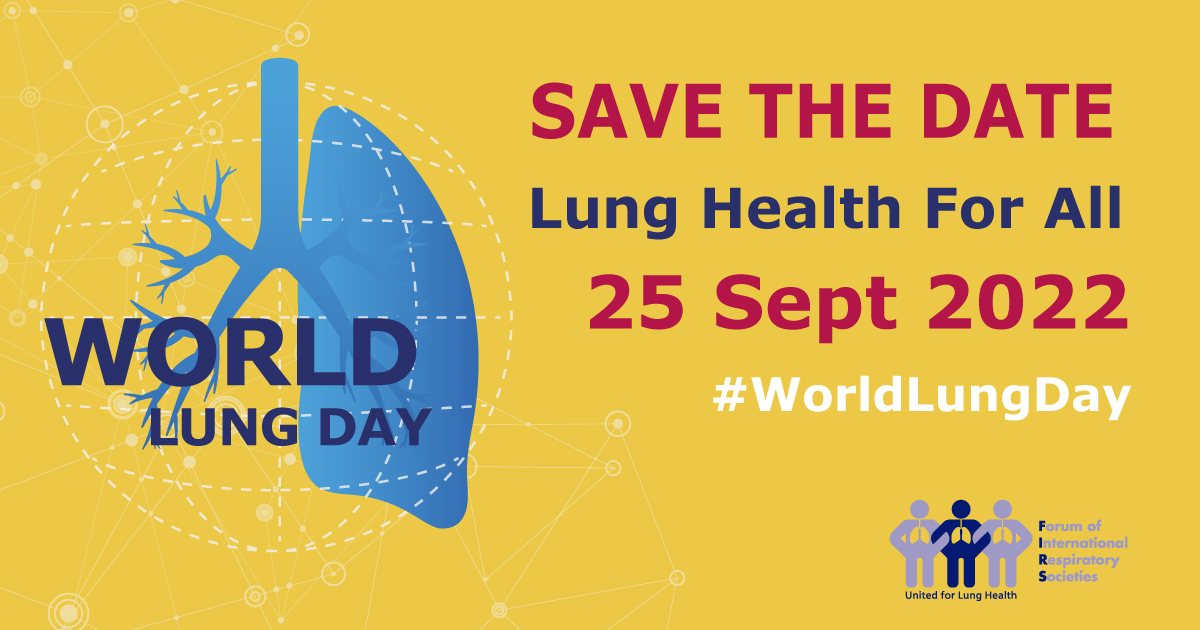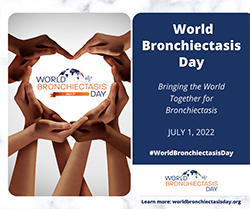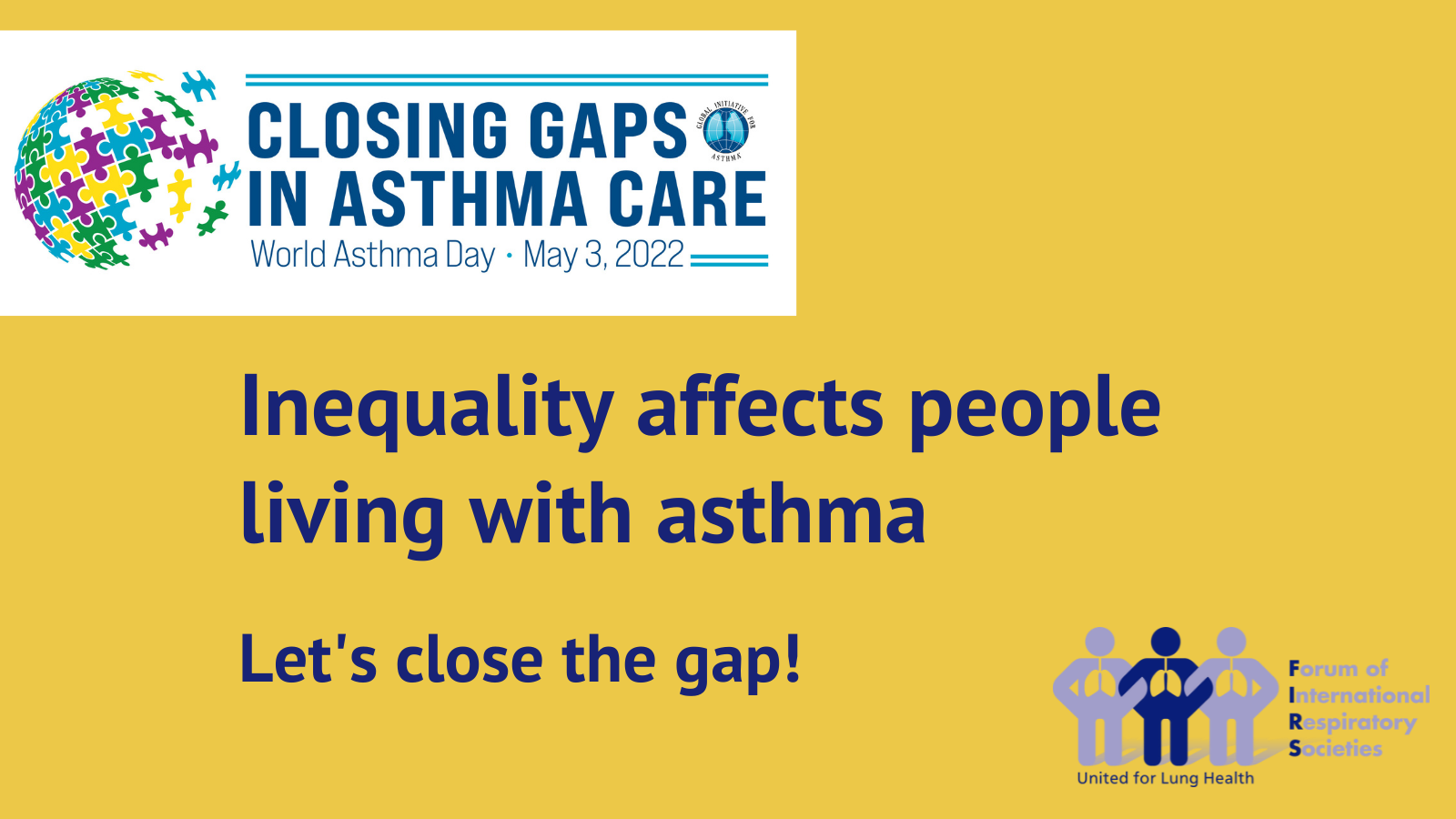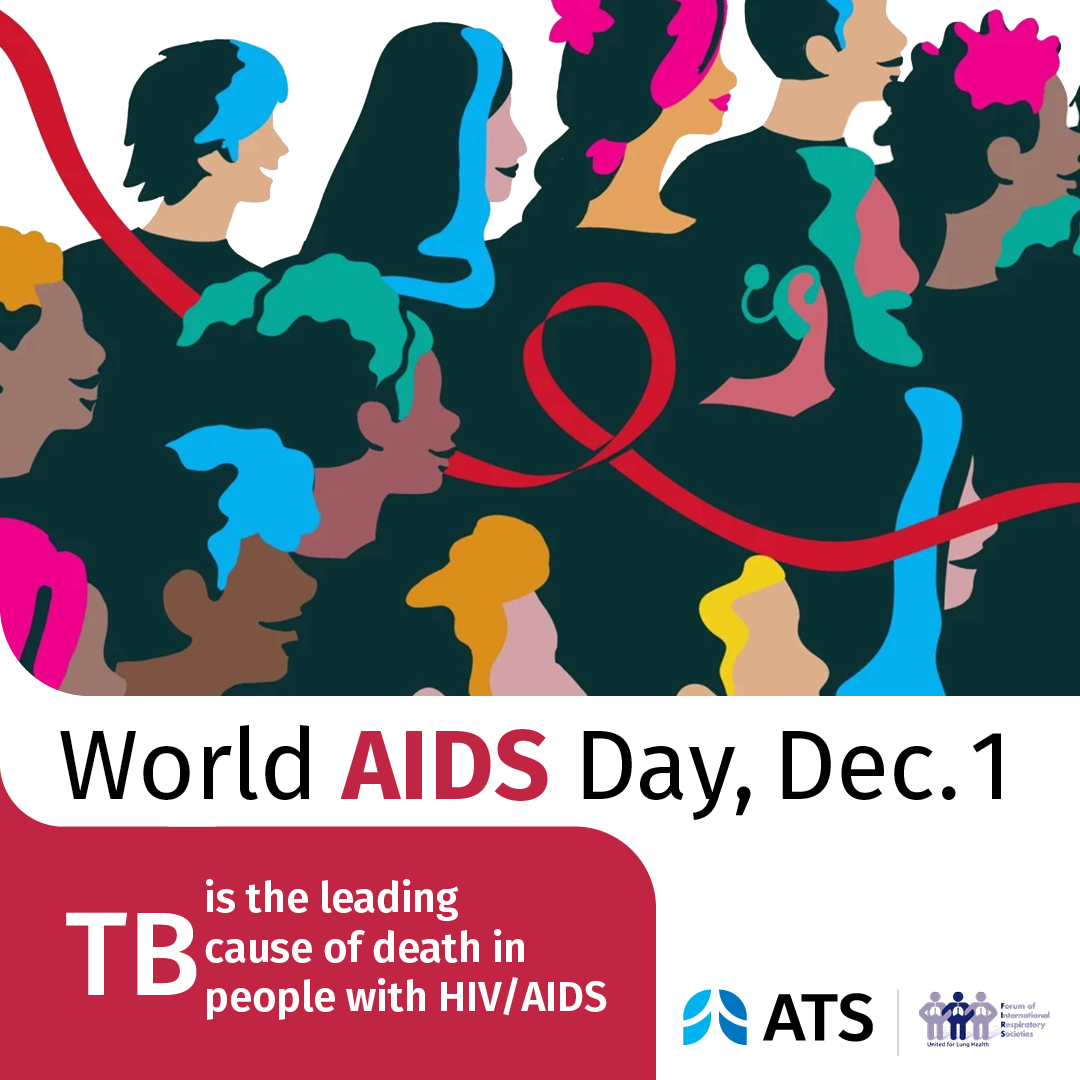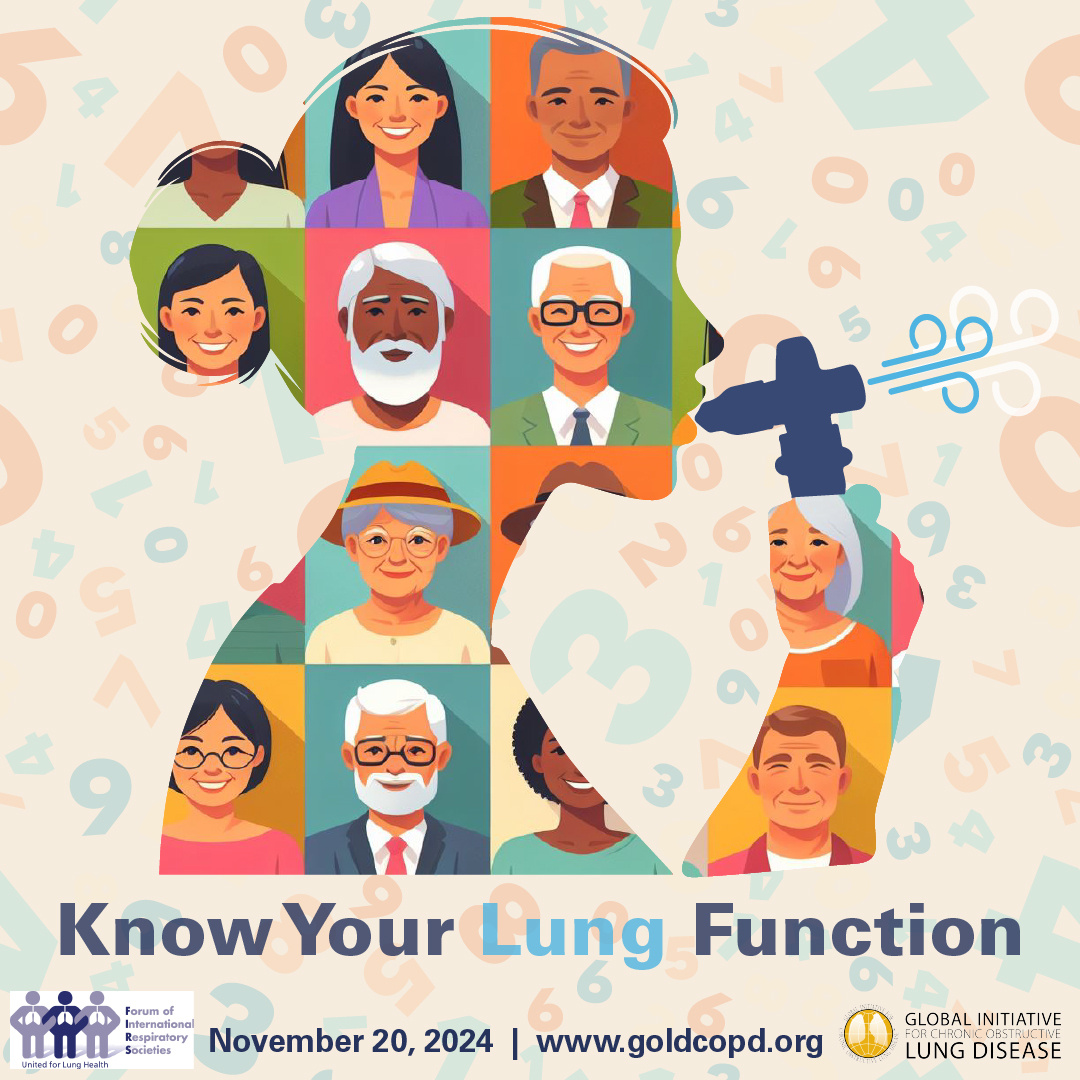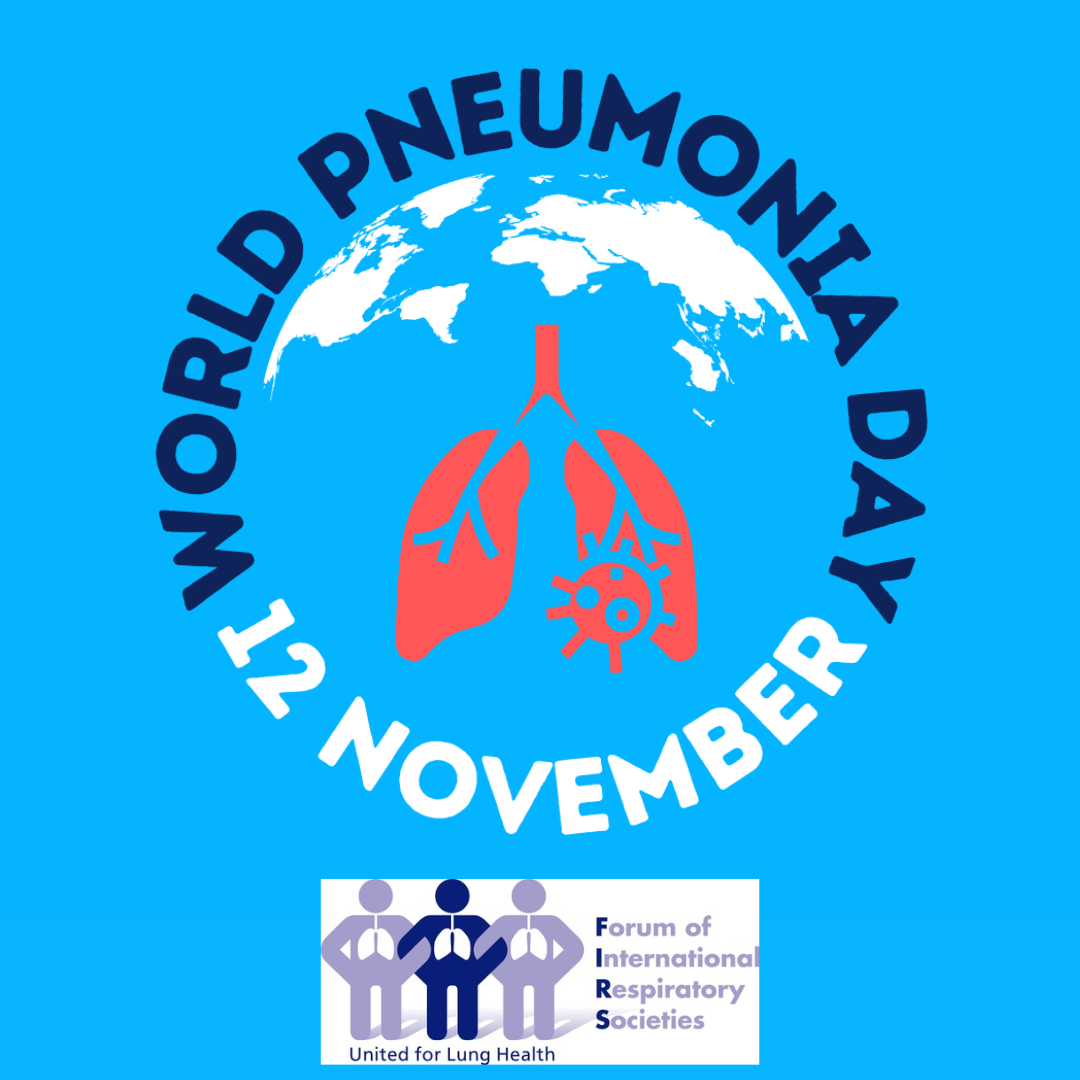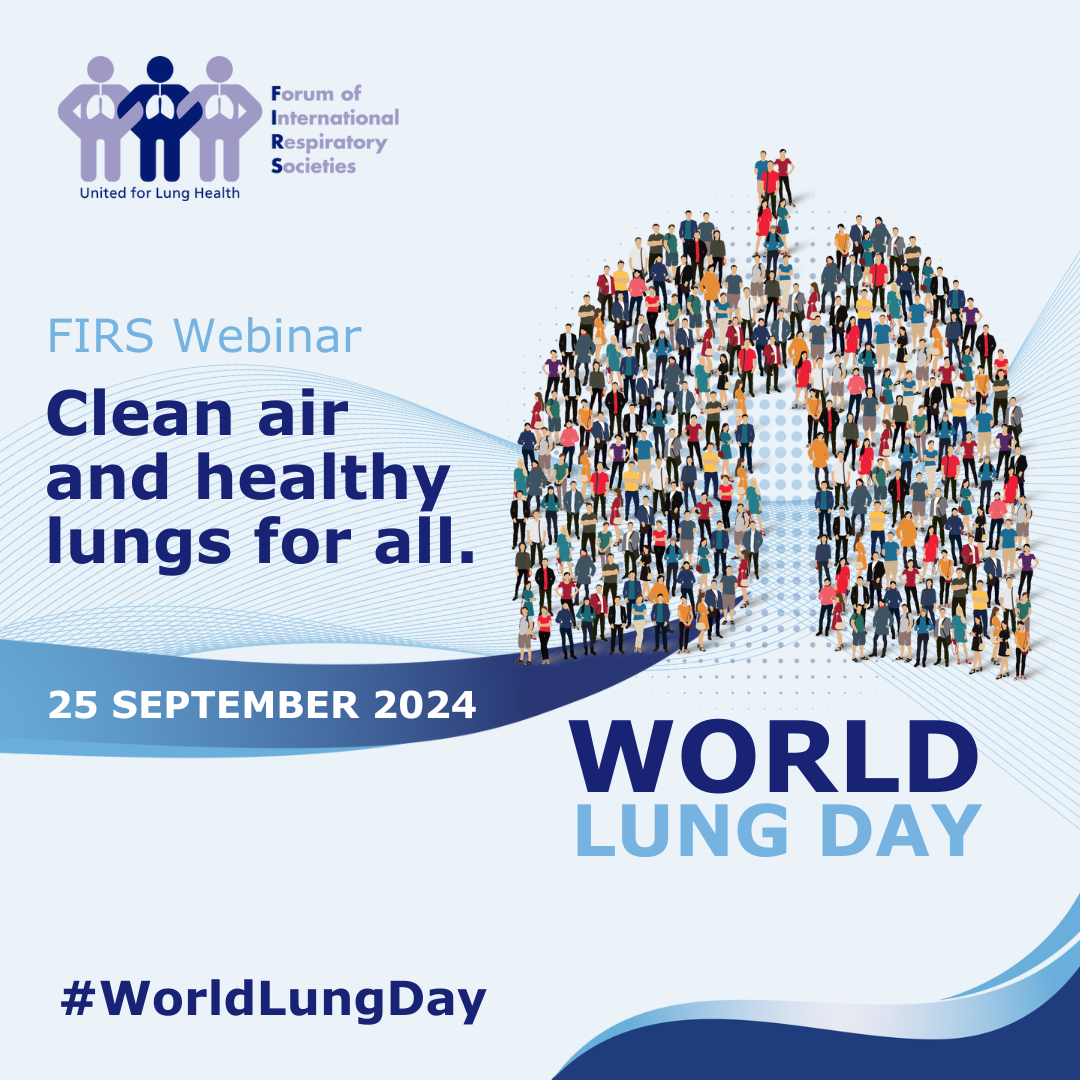World Lung Day, 25 September, is a day for lung health advocacy and action. Join us to promote better lung health globally.
Lung Health For All
The COVID pandemic has highlighted stark inequalities in lung health, so our theme this year is Lung Health for All. We will look at what can be done to close those gaps, focussing on:
- The global burden of the major respiratory diseases and the impact of COVID, with a focus on lower and middle income countries
- The importance of early detection and screening
- Reducing inequalities in screening, diagnosis and treatment of chronic lung conditions
.
The new FIRS/WHO webinar series: Respiratory disease in the era of COVID – a global perspective
We had a great response to the inaugural FIRS/WHO World Lung Day webinar series launched on 22 September.
FIRS and WHO gathered experts from around the world to discuss the burden of respiratory diseases globally, what can be done to combat respiratory disease in the era of COVID, and how we can address unequal access to prevention and treatment in lower and middle-income countries.
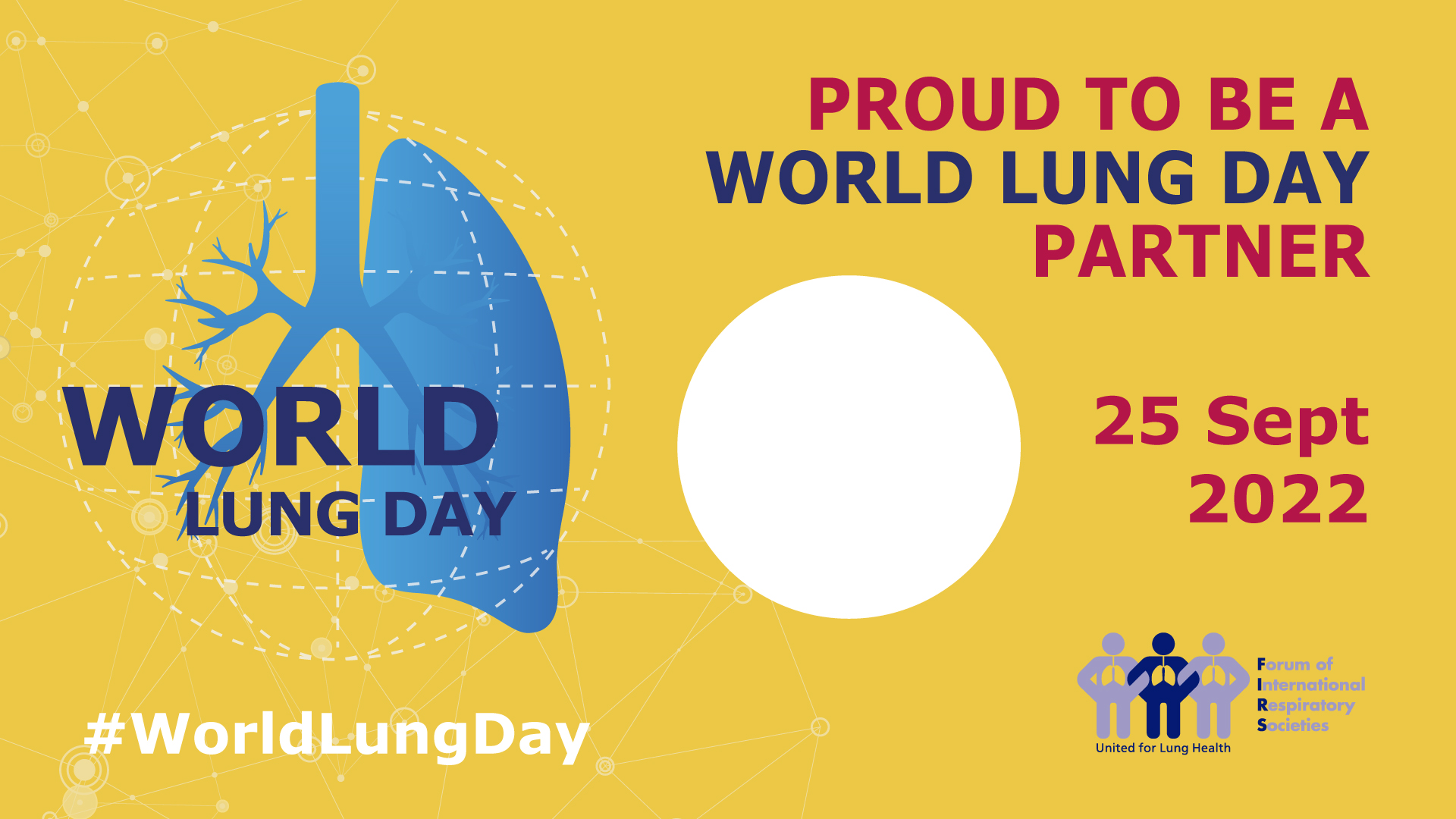
Join us! Become a World Lung Day partner
If you haven't joined yet, sign up as a WLD partner by emailing fiona.salter@firsnet.org
All our partners are included on our partners page.
Please help us raise the profile of World Lung Day by sharing the 'Save the Date' graphic on your channels.
Download the graphic
Don't forget your 'Proud to be a World Lung Day Partner' graphic, add your own logo to the circle and share on social media.
Download the logo
Please use #WorldLungDay.

Healthy Lungs for Life events around the world - winners announced!
For 2022 FIRS has joined European Lung Foundation (ELF) Healthy Lungs for Life public awareness campaign to highlight the importance of lung health through a range of events, projects and promotional activities - this year with a focus on lower and middle income countries and on climate change.
We will be showcasing local, regional and national public education activities around World Lung Day. Share a picture of your event or video and show others that you support #WorldLungDay
World Lung Day Editorials
Read expert insights.
American Journal of Physiology-Lung Cellular and Molecular Physiology. World Lung Day: impact of “the big 5 lung diseases” in the context of COVID-19
FIRS Lung Health Fact Sheet a brief guide to the impact of the 'big five' respiratory diseases.
The American Journal of Respiratory and Critical Care Medicine.
Lung Health for All: Chronic Obstructive Lung Disease and World Lung Day 2022. The Global Initiative for Chronic Obstructive Lung Disease (GOLD).
Be the Change: Advancing Lung Health and Closing the Global Healthcare Gap Gregory P. Downey, M. Patricia Rivera, Lynn Schnapp, Irina Petrache, Jesse Roman, and Karen Collishaw.
Respirar World Lung Day 2022—Lung health for all by Dr David CL Lam, President of the APSR, the first of six articles in a special issue of Respirology published in support of World Lung Day 2022.
Erase-TB London School of Hygiene & Tropical Medicine news round-up for World Lung Day
Share on social media
We look forward to seeing how you are celebrating World Lung Day. Whatever you're doing share it with us on:
Facebook
Twitter
Instagram
- Download the World Lung Day 'Save the Date' graphic.
Download the graphic, Instagram version - Download the World Lung Day Facebook profile image.
Download the profile image - Use #WorldLungDay in your posts
-
World Lung Day social cards are also available in these languages:
Celebrate World Lung Day in Spanish, Portuguese, Japanese, Chinese
Early detection saves lives in Spanish, Portuguese, Japanese, Chinese
Get the right care and support in Spanish, Portuguese, Japanese, Chinese
Reduce inequalities in treatment in Spanish, Portuguese, Japanese, Chinese
